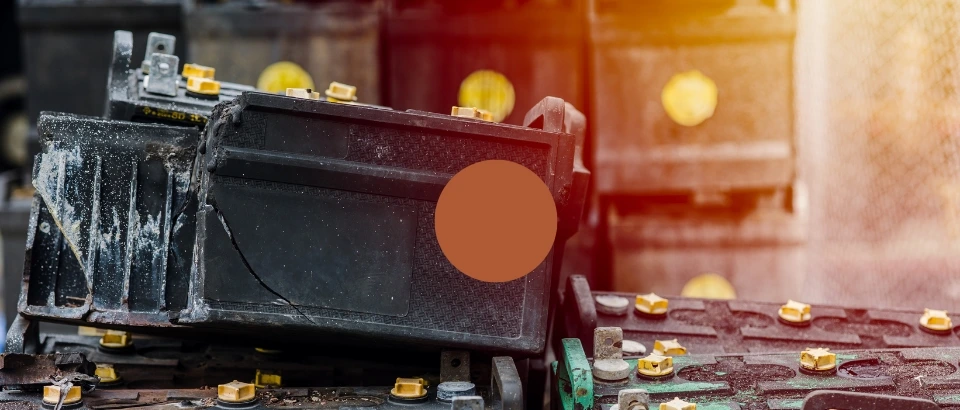How to Properly Dispose of Old Car Battery: Tips and Best Practices
Car batteries are essential power providers for our cars but may become hazardous waste when old and useless. Improper disposal of old car batteries leads to severe environmental pollution, such as contaminated soil and water bodies, and threatens human health. Because of lead, sulfuric acid, and other hazardous materials inside such a battery, their disposal must be very cautious. Thus, this article clearly states the guidelines and best practices for the safe and responsible disposal of your old car battery.
Improper disposal of old car batteries can have severe environmental impacts. Suppose batteries are thrown away with regular trash. In that case, their toxic chemicals can leak into the ground, contaminating soil and nearby water sources. These pollutants can harm plants, animals, and even people, as contaminated water sources can end up in drinking water supplies. In addition, the risk of fire or explosions from mishandled batteries makes them a serious safety hazard when disposed of irresponsibly.
Why Proper Disposal Matters
Improper disposal of car batteries leads to very damaging environmental and health effects. Lead and acid from the batteries can leach into soil and water sources, contaminate ecosystems, and affect drinking supplies. Additionally, if damaged or heated, car batteries disposed of with general household trash tend to cause fires or release toxic fumes. Proper disposal of the enslavement and resources since most materials contained in car batteries can be recycled and reused.
Know Your Battery Type
There are various types of car batteries, and what you have may determine its disposal method. Here’s an overview of the main types:
- Lead-Acid Batteries: These are the most common car batteries and are highly recyclable.
- Lithium-Ion Batteries: These are found in electric vehicles, which are dangerous because if the batteries are damaged, they might catch fire or even explode.
- Nickel-metal hydride Batteries: These are often found in hybrid vehicles. They can be recycled, but special facilities may be required.
Before disposing of a battery, determine its type and dispose accordingly based on proper guidelines.
Recycling: The Preferred Disposal Method
The best way of disposing of an old car battery is recycling, whereby the hazardous materials are dealt with, and the valuable materials are retrieved. Most of the car battery’s constituents, such as lead, plastic, and sulfuric acid, are recycled to manufacture new batteries. The steps involved in recycling responsibly include:
- Finding a Battery Recycling Facility
many recycling centers accept car batteries, but some specialize in lead-acid or lithium-ion batteries. Seek a local facility or a recycling center that accepts car batteries and assures you it is certified. - Use Retailers or Automotive Shops
some car service shops, car dealerships, and battery retailers collect old batteries for recycling. They can take them for free or for a small fee, and some offer store credit or discounts on new batteries. - Household Hazardous Waste Collection Events
Some cities organize hazardous waste collection days that can accept car batteries for proper disposal. You can contact your town’s waste management office to learn more about the event.
Handling Used Batteries: Safety Precautions
Old used batteries can be hazardous if you need to be more careful. Here’s the deal on safety precautions in handling old used batteries:
- Wear Protective Gear: If acid is leaking onto the skin and eyes, gloves and safety goggles should be worn.
- Handling: As car batteries are heavy, handle them very gently while lifting them. Avoid letting them fall or topple.
- Store in a Safe Place: If you plan to store the battery for some time, ensure that it is in a cool and dry place and away from direct sun and kids or pets.
Illegal Methods of Disposal of a Battery
You cannot throw your car battery in your garbage or allow it to end in nature since it is illegal and might attract hefty fines or lawsuits. Many countries have rigid laws concerning the disposal of harmful substances such as car batteries, so you will attract huge penalties once you violate such laws. Moreover, poor disposal affects the environment to a dangerous extent, destroys wildlife, and threatens health among neighboring communities.
Consider Reconditioning as an Alternative
But if your car battery is not entirely dead, reconditioning could work. Indeed, restoring partially drained batteries to good performance is termed reconditioning the battery. Sure, it would not be applicable for all batteries; however, at times, it can also revive some lead-acid batteries, which would conserve money and resources in the long term.
FAQs About Car Battery Disposal
- Q: Can I dispose of my car battery in the regular trash?
A: Car batteries are hazardous waste and must be recycled through recycling centers or at authorized hazardous waste collection events. - Q: Is it free to recycle my car battery?
A: Many retailers and recycling centers accept car batteries free of charge. Some may offer incentives like store credit or discounts on a new battery. - Q: How do I transport the battery safely?
A: The battery should be put into a plastic bag or in any leak-proof container which may prevent acid spills. Placing it on its side and securing it in that transport will prevent it from rolling over accidentally.
Conclusion
Proper disposal of an old car battery ensures that the environment is protected and people are safe. Recycling or reconditioning reduces hazardous waste and promotes responsible reuse of valuable materials. If you follow these guidelines and best practices, you will not only comply with your legal requirements but also contribute to a cleaner and safer environment. The easiest way to change this situation is by properly disposing of your old car battery.











